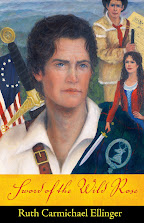
Recently, someone asked, “Why do you write about the past, about your ancestors and the trials they endured.”
I didn’t have to think long. In the words of Bruce Catton:
"We are people to whom the past is forever speaking. We listen to it because we cannot help ourselves, for the past speaks to us with many voices.”
In my home I have an art print by Thomas Faed titled, “The Last of the Clan.” The painting speaks of an ending for some, a beginning for others, and always; the poignant loss of what is loved and known. The old clan chief sits astride his highland pony by the seashore. His people reveal the mixed emotions etched in their faces. They mill about him, his wife weeping by his side. Some personal belongings are on the dock, left behind like the chief who is too old to make a new life.
A lad, perhaps a son, is pulling up the ropes that hold the ship and this people to the land. Many of the clan people are sailing away, never to be seen again by the chief’s old eyes.
When I first viewed this painting, I connected with the scene emotionally, feeling the pathos of the landscape, the exile, acutely aware of my own ancestral departure from the land of my people’s nativity. The past calls out to me and I simply write about those times of separation from home and country when my people came to America to begin a new life. They carried a sword, a dream of freedom, and I could not help writing about them. When I visit my ancestral home in Scotland, I understand in a deeper sense what it meant to leave all. The blood runs deep and It is part of me…still…still.

























